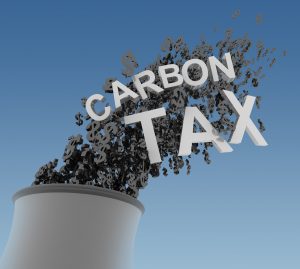
A carbon tax would be devastating to hard-working families and is not the direction America needs to be moving, said U.S. House Republican Whip Steve Scalise (R-LA) on Wednesday.
The congressman on May 22 introduced House Concurrent Resolution 41 with lead cosponsor U.S. Rep. David McKinley (R-WV) to condemn a carbon tax as being detrimental to the United States economy. The lawmakers have offered this resolution every session of Congress since 2013.
“With the introduction of our anti-carbon tax resolution, Congressman McKinley and I are calling on all members of Congress to show hard-working families that they stand for American energy dominance and against an expensive, ineffective carbon tax,” Rep. Scalise said.
Among the 20 other Republican lawmakers who joined as cosponsors of the resolution is U.S. Rep. Bill Flores (R-TX).
In introducing the resolution, Rep. Scalise thanked President Donald Trump for his leadership in growing America’s energy economy.
“By reducing taxes and reforming regulations on energy production, we have increased job opportunities, lowered prices on gas and electricity, and strengthened our national security by improving our ability to provide energy to our allies around the globe,” he said.
Nevertheless, special interest groups want to undo this progress via “a costly, job-killing carbon tax,” Rep. Scalise said.
“Some estimates show this tax would cost American families nearly $2,000 per year by increasing costs on everything from food and clothing to electricity,” he added.
The resolution would denounce a carbon tax by expressing the sense of Congress that it would increase energy prices; fall hardest on the poor, elderly and those on fixed incomes; lead to jobs and businesses moving overseas; result in less economic growth; and would increase the cost of every good manufactured in the United States, among other negative impacts.
Overall, a carbon tax would not be “in the best interest of the United States,” according to the resolution, which received endorsements from numerous stakeholder groups, including the Competitive Enterprise Institute, the American Energy Alliance, the Council for Citizens Against Government Waste, and the American Farm Bureau Federation, among others.



